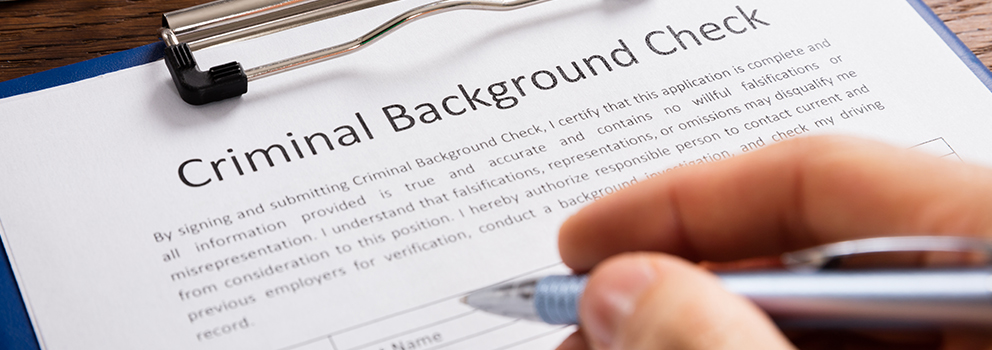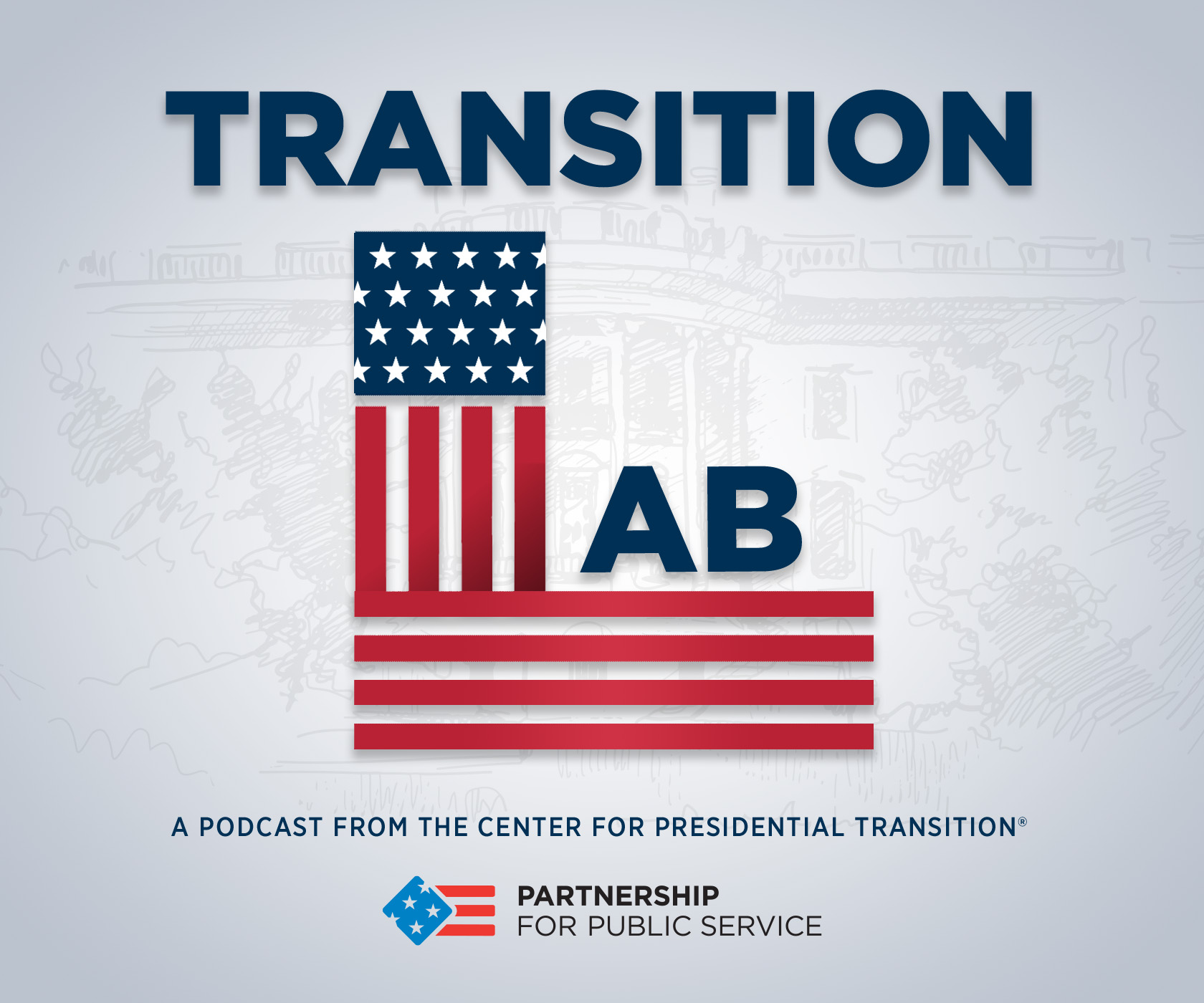Ready to Serve: Prospective Appointees
Background Checks and Security Clearances
Every person hired for a federal job must undergo a background investigation to ensure that they are “reliable, trustworthy, of good conduct and character, and loyal to the United States.” This is an important and lengthy part of the appointment process.
Familiarize yourself with the forms
To initiate a background investigation, your sponsoring agency will ask you to complete one or more of these forms: the Questionnaire for National Security Positions (SF 86) or the Questionnaire for Public Trust Positions (SF 85P), depending on how your position may affect national security and other sensitive matters such as government finance and technology.
The government is in the process of consolidating these forms into one Personnel Vetting Questionnaire. It may take weeks to gather your records and complete, and longer if you have significant foreign travel. Get started early!
Webinar
An Overview of Vetting Forms: What Aspiring Political Appointees Should Know
Purpose of Background Investigations
The background investigation and related processes are used to determine your:
- Suitability for government employment.
- Eligibility to serve in a national security position and have access to classified information.
The level of background investigation required depends on the nature of the position. Federal jobs are designated as low-risk, medium-risk or high-risk public trust, depending on the potential impact that an individual could have on the integrity or efficiency of the agency’s mission. High-risk public trust positions include individuals involved in overseeing large amounts of government funding, law enforcement personnel and those who work with federal information systems.
Position sensitivity levels are related to national security, are determined by the potential damage that an individual could cause to national security and often require a security clearance. The sensitivity levels and associated levels of security clearances are defined below.
- Do not require a security clearance.
- Do not require access to classified information.
- Do not have the potential to adversely impact national security.
- Secret or confidential security clearance is required.
- Can access secret or confidential classified information.
- Unauthorized disclosure of secret or confidential classified information can cause significant or serious damage to national security.
- Top secret security clearance is required.
- Can access top secret classified information.
- Unauthorized disclosure of top secret classified information can cause exceptionally grave damage to national security.
- Top secret security clearance is required.
- May require access to sensitive compartmented information.
- Unauthorized disclosure of sensitive compartmented information can cause inestimable damage to national security.
Top Tips
You may be given notice as short as 24 to 72 hours to complete and submit a form online in the e-QIP system. Long before you are asked to submit the information, obtain a copy of the Questionnaire for National Security Positions (SF-86) form or the Questionnaire for Public Trust Positions (SF-85-P). The Guide for Standard Form SF-86 provides a checklist of items you will need.
You must answer all questions on the clearance application form truthfully and completely. Passage of time and other factors are considered when reviewing any issues involving misconduct.
While it is possible to amend your submissions after the fact, doing so may cause some concern as to why the information was not reported correctly in the first place. Further, every amendment or resubmission may delay the overall process and your clearance.
Having international experience, foreign contacts or financial holdings is not a negative for you as an applicant. However, there could be increased scrutiny because of these activities and any personal connections as they relate directly to the topic of national security.
Background Investigation Process
The end-to-end processing time for the background investigation mostly depends on the type of investigation required and the sponsoring agency involved. Individuals with significant international activity, where records may be harder to obtain, may also experience longer processing times. The completion time for an investigation ranges from 30 to 180 days, with an average of about 60 days. After the investigation is completed, there still can be considerable time needed for an agency to adjudicate the results and obtain other information to make a final determination.
Investigation service providers conduct the investigations. They include:
- Defense Counterintelligence and Security Administration – Conducts most background investigations government-wide.
- FBI Security Division – Conducts investigations for hundreds of politically appointed, Senate confirmed nominees as well as the staff of the Executive Office of the President, the Department of Justice and certain sensitive positions at the Department of Energy.
- Department of State’s Bureau of Diplomatic Security – Conducts investigations for State Department employees.
Your sponsoring agency reviews the background investigation report and any other information collected to make a final adjudication determination. Agencies may also have other requirements, such as the polygraph test, for certain positions.
The Questionnaire for National Security Positions (SF-86) is a form required for most national security background investigations. It asks for personal information regarding citizenship, residence, education, employment history, family members and associates, and foreign connections and travel. Additionally, it asks for information about criminal records, illegal drug involvement, financial delinquencies, certain types of mental health treatment, alcohol-related incidents and counseling, military service, prior clearances and investigations, civil court actions, misuse of computer systems and subversive activities. Supporting documentation that may be requested includes citizenship documents, residence history, employment history and the applicant’s selective service number. For instructions on completing the form, see the Guide for Standard Form SF-86.
Each administration has had its own version of another form, the SF-86 Supplement, that it asks applicants to complete. The Trump administration used this SF-86 Supplement. Versions from the Obama and George W. Bush administrations can be found here.
The enhanced subject interview is an opportunity for an investigator to meet with the applicant to gather information and address any questions. Additionally, if you are being investigated for a top-secret clearance or for a secret clearance that requires access to a designated special access program, an enhanced subject interview is a regular part of your investigation.
During this interview, the investigator will confirm the accuracy and completeness of the information provided. You could be asked about matters that were not on your application.
During election years, presidential transition teams may submit names of key personnel to initiate FBI background checks and security clearances in advance of Election Day and as provided for by law. Made possible by the Intelligence Reform and Terrorism Prevention Act of 2004, temporary security clearances are designed to allow for a smoother transition and to prevent lapses in national security coverage.
On the Blog

Advice for prospective political appointees: Get an early start filling out security and financial disclosure forms


